As horse owners we know that deworming is important but do you know about the types of parasites that dewormers treat?
Deworming together with other environmental management practices can help keep your horse’s internal parasite load at an acceptable level. Internal parasites are small organisms that live out part of their life cycle within the horse’s body with the potential to cause illness. They inhabit specific tissues, organs and systems of the horse deriving nutrients from the horse so that they can continue to grow and develop.
There are many species of internal parasites that infect horses but the most common ones are stongyles, ascarids, tapeworms, pinworms, bots and threadworms. The parasites that affect your horse have specific life cycles with their activity varying throughout the year. The larvae and eggs of certain parasites tend to be more abundant in both the spring and fall.
Stonglyes: Large and Small
Large Strongyles
There are three species of large strongyles affect horses: Strongylus vulgaris, Strogylus edentates and Strongylus equinus. The larvae are found in pastures and are ingested when the horse grazes. Once ingested the larvae migrate to the large intestine. From here they burrow into and migrate in the walls of the arteries that are the primary blood supply to the small and large intestine. This migration can result in disruption of blood flow to the intestines by the formation of blood clots resulting in colic. After about 120 days the larvae move to the lumen of the large intestine where maturation is complete.
Small Strongyles
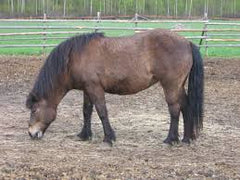
Small stronglyles have a similar life cycle to the large strongyles. They too are found on pasture grass, are ingested by the horse while grazing and then move through the digestive tract. Once they reach the large intestine they stay there and do not migrate to other areas. They are unique in that they often burrow into the walls of the large colon and cecum becoming encysted. During this time they can remain in the body for up to 2 years. They wait there until conditions in the intestines are ideal for maturation and then emerge from the intestinal wall to mature and produce eggs.
Significant inflammation and injury to the intestinal wall can cause profuse diarrhea and can be fatal
Other complications include, colic, diarrhea, loss of condition, weight loss, poor coat condition and slowed growth.
Ascarids (Parascaris equorum) or roundworms
These typically affect younger foals and weanlings because most horses develop immunity to them by the time they are yearlings. Life cycle begins when the foal or yearling consumes grass, or feed from surfaces such as feeders, stall walls or water contaminated with eggs.
Once ingested the eggs turn onto larvae in the small intestine. The larvae migrate from the small intestine to the liver and then to the lungs, one in the lungs the parasites are coughed up, swallowed and migrate back to the small intestine to mature for 2-3 months. They lay eggs that are passed in the manure and the cycle is repeated.
The life cycle takes about 3 months physical damage such as inflammation and scarring of the liver and lung tissue occur in the horse during migration. Adult roundworms can cause physical damage ranging from mild digestive upset and lower feed absorption to severe colic due to intestinal blockage or intestinal rupture.
Tapeworms
Tapeworms have two hosts in their life cycle, the first being the oribatid mite and the second being the horse. The mites consume the tapeworm eggs, which then develop into larvae inside the mite. The horse then ingests the mite while grazing and the mite moves to the small intestine where it releases the tapeworm. The adult tapeworms then continue to move to the small intestine until they arrive at the ileocecal junction. Here they attach to the gut wall and can cause inflammation of the GI tract. Reports of colic being caused by tapeworms has been reported. Also obstruction, ulceration or thickening of the intestines can occur because of heavy tapeworm loads.
Pinworms (oxyruris equi)
Pinworms are found in the horse’s environment and are ingested by the horse as eggs. Once ingested they mature in the horse’s intestines. The adults emerge out of the anus and lay eggs along the horse’s skin in that area, making the horse itch and rub its tail. Pinworms do not cause much harm to the horse internally but instead cause hair loss from the horse scratching it tail.
Transmission can occur in stalls and from contact with grooming materials tail wraps and fence posts.
Bots (stomach bots)
These are both internal and external parasites. The most common bot fly found in horses is the Gasterophilius intestinalis. The adult bot fly, an external parasite is a flying insect that lays eggs on the horse’s coat, primarily on the lower forelimbs but sometimes on the main and neck. The eggs remain there until stimulated to hatch by the horse’s saliva as it bites and licks the infected area. The larvae then burrow into the tongue and gums of the horse and incubate for about 4 weeks. The parasite then migrates to the lining of the upper part of the stomach where they will stay for 9 months before passing in manure. They can cause minor oral ulcers and damage to the stomach lining but overall no serious health problems generally occur.
Threadworm (Strongyloides westeri)
These are internal parasites that mainly affect foals. They are rarely seen in older horses over 8-10 months due to developed immunity. Foals become affected in three ways, by ingesting larvae through the mare’s milk, from the larvae penetrating the foals skin, or ingestion of larvae in the environment, larvae migrate to the lungs and end up in the small intestine. Diarrhea is often associated with threadworm infestation and can cause dehydration. Threadworms are rare.
All horses are expected to have some level of internal parasite burden.
Understanding how each of these parasites function can help you better understand which management practices, such as manure removal from pastures cand help reduce populations,
Environment Management for Parasites
Implementing environmental management practices can help break up the life cycles:
- Cross-graze with other species, cattle, sheep and goats serve as biological vacuums for equine parasites
- Feed hay and grain in raised containers and not directly on the ground
- Clean water sources regularly to prevent fecal contamination
- Quarantine new arrivals and perform fecal examinations
- Obtain fecal egg counts
- Remove manure daily from stalls and run-ins, and weekly from paddocks and pastures
- Be sure paddocks and pastures are well drained and not overpopulated.
- During hot, dry weather harrow or rake pastures to disperse manure pile and expose larvae to sun
- Compost manure rather than spreading it in fields where horses graze
- Use a feeder for hay and grain and avoid feeding on the ground
- Implement fly control programs
- Routinely examine horses for telltale signs in infestation
- Establish a parasite prevention and monitoring program with your veterinarian
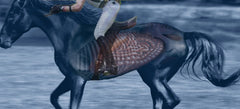
From a nutritional standpoint, the issue with these parasites is not merely that they take nutrients away from the horse for their survival, but also that they inflict potentially irreversible damage to the digestive tract tissue and alter gut function.
The gut wall plays a crucial role in nutrient absorption. The duodenum, the first section of the small intestine, secretes various digestive enzymes necessary to break down molecules like sugars, starch, amino acids, and fatty acids. These components are then absorbed into the gut epithelia in the subsequent jejunum and ileum sections of the small intestine.
Damage to these intestinal regions can adversely affect cells that secrete enzymes and those involved in nutrient absorption. Parasites in the intestinal tract's arteries could restrict blood flow, thus reducing the oxygen supply to intestinal tissues. Damage to vessels in this region might hinder nutrient movement away from the gut. This damage could be permanent, resulting in a horse that has difficulty gaining or maintaining weight.)
Should a veterinarian confirm an infestation in your horse, a deworming regimen will most likely be started. To help the horse recover faster, he or she may suggest a supplemental feeding regimen to help counteract the effects of any weight loss or intestinal damage the horse may have sustained throughout the ordeal, which may cause a dull hair coat.
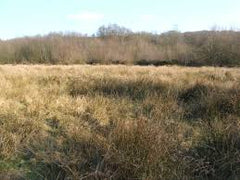
Horse Guard Inc. offers a variety of products that can help your horse's recovery by providing it with balanced nutrients to help them from the inside out.
The first product we'd recommend is Super Weight Gain, which features high-protein, high-fat soybeans to boost your horse's caloric needs during recovery. It also contains methionine (an essential amino acid), a prebiotics and probiotics package for digestive system support as well as a vitamin and mineral package to address any deficiencies that the horse may from being infected. All are important factors when counteracting the effects of intestinal parasites.
Another helpful product would be Flaxen Glow. Flaxen Glow is a unique blend of 50% Flaxseed Cake and 50% Full Fat Extruded Soybeans. It is high in protein and high-fat concentrate that is fed to aid weight gain, promote healthy skin and coat, and help reduce inflammation.
Our Hoof and Hair Guard, contains 100mg of biotin, which is a great supplement for further hair growth & coat conditioning, as well as other essential nutrients such as methionine to support overall health. This supplement is carried in extruded soybeans which provide high-quality protein and oils, making it an excellent choice for those looking to improve hair conditioning and hoof health.
These products are multifaceted ways of improving your horse's health after an infestation. However, these products are wonderful supplements even if there aren't any health issues. Either way, we think you'll agree about how great your horse will look and feel good after using our products.
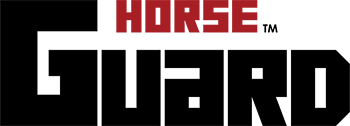
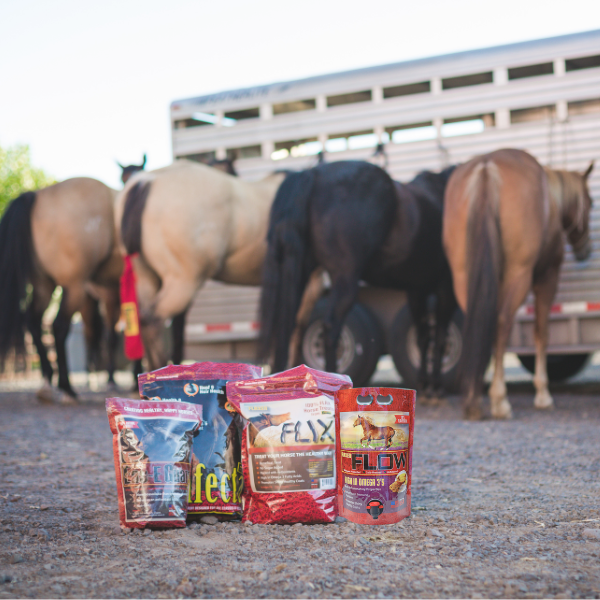
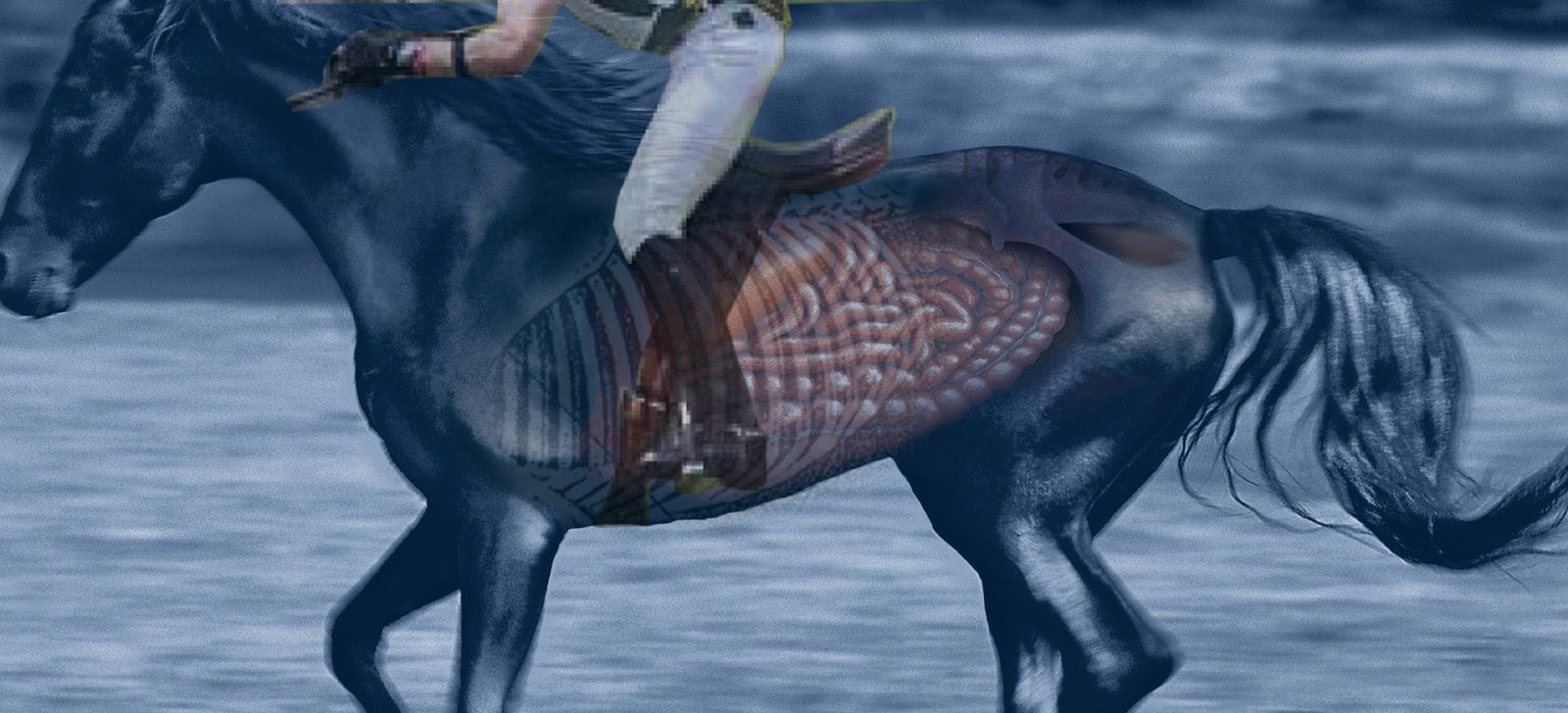
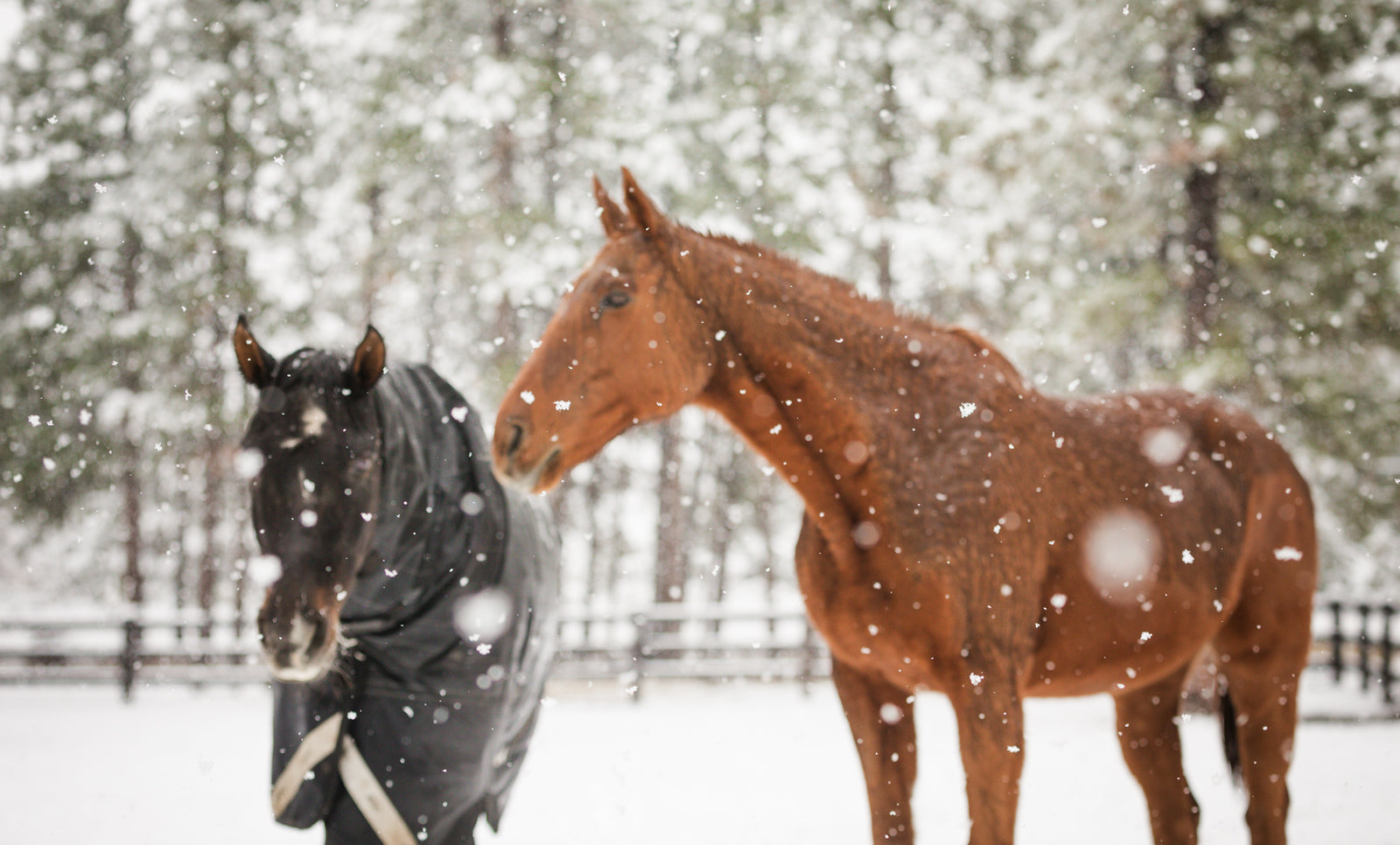
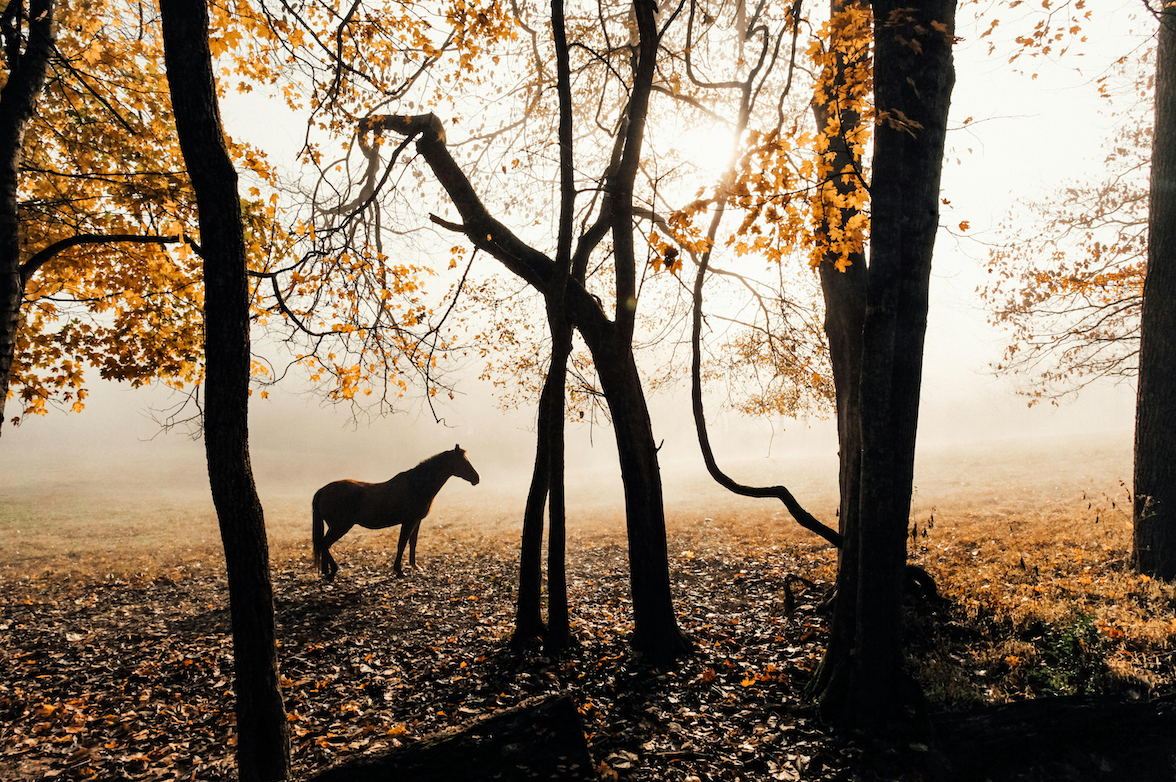
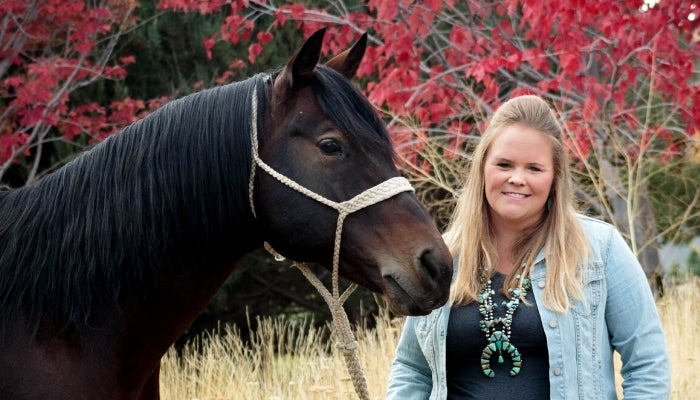
Sidnie Zari
April 08, 2021
Aloha Kelsey, I spoke with you on the phone regarding my laminitic overweight horse. My question is, I have been feeding bute twice a day, every 12 hours to keep him more comfortable during this laminitic episode and if I am concerned that I might be causing him ulcers do I dare worm him? Could the wormer throw his already compromised system into more difficulty?
Thank you in advance. Sidnie